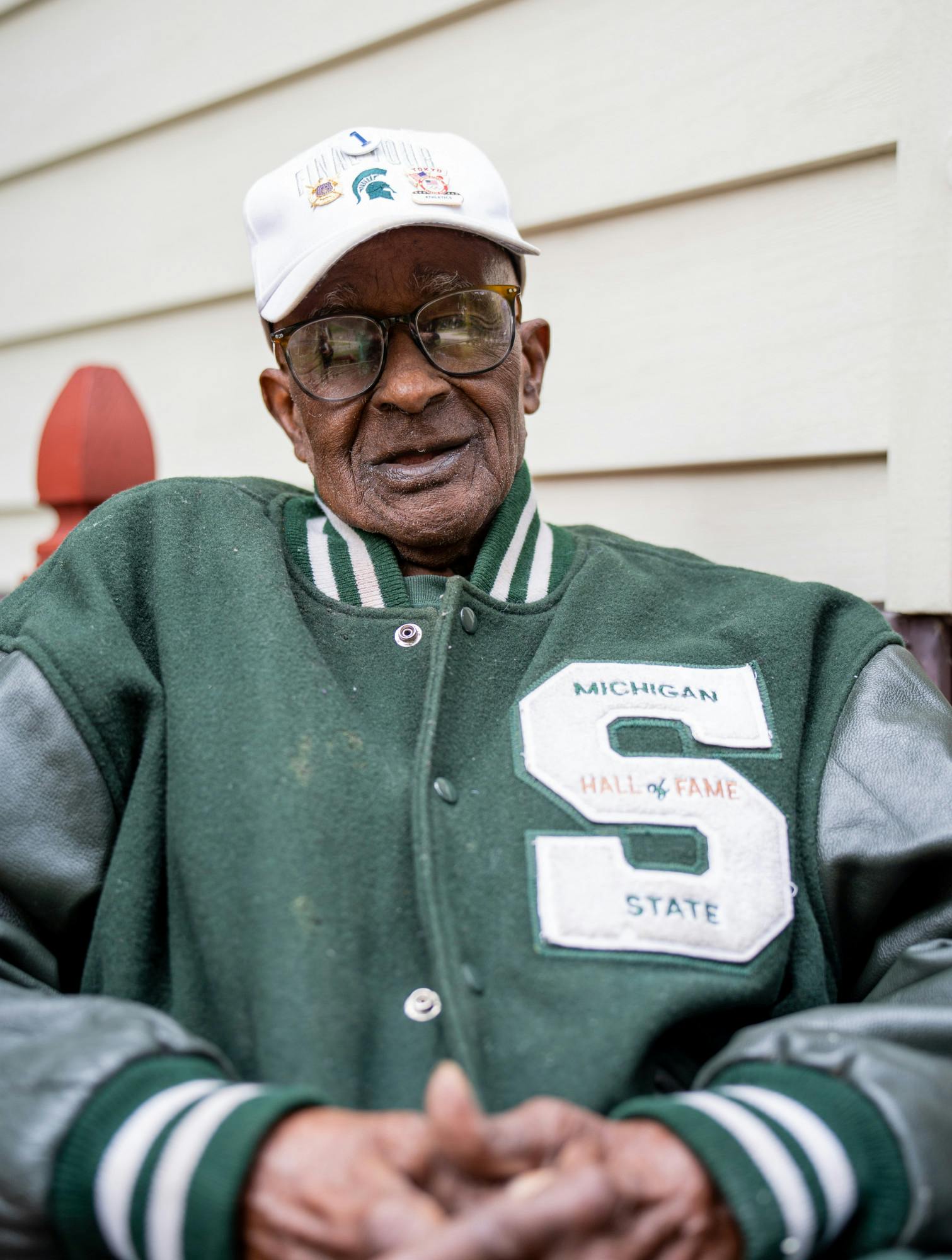Coach James Bibbs, first Black head coach at MSU and first Black head track coach in the Big Ten, led the 2022 MSU Homecoming Parade as grand marshal. From high school baseball to running track and playing baseball at Eastern Michigan University, Bibbs is a well-versed athlete and coach that learned the ins and outs of athleticism throughout his career.
During his junior year at EMU, Bibbs tied the 60-yard dash world record with Jesse Owens at 6.1 seconds. Shortly after, Bibbs received offers to invitational track meets and shifted his attention from baseball to track at EMU.
“I really connected well with my coach,” Bibbs said. “He convinced me that I had a future in track … I go ahead and transfer to physical education so I could be a track coach like him … I give him credit for my success."
After graduating Bibbs began substitute teaching and volunteer coaching in Detroit; he coached the five consecutive relay championship-winning AAU Women's team, coached at his alma mater Ecorse High School, became head coach for the 1967 Pan American women’s track team and was shortly after asked to coach at MSU.
“Michigan State was kind of a magic name,” Bibbs said. “I wasn’t not going to come to a school like Michigan State.”
Bibbs coached the MSU men’s track and field team from 1968 to 1995 with 52 of his athletes winning Big Ten titles and coached 26 All-Americans.
“I’m realizing how big of an honor it is,” Bibbs said. “I’m blessed to be up here.”
When Bibbs was feeling down or upset, his high school coach noticed and would tell him to go home, don’t train and come back early Saturday morning for the upcoming meet.
“Cause he knew other things were affecting me,” Bibbs said. “I did not do good in practice and he knew me well enough to know that I couldn’t go to practice.”
As a coach, Bibbs strived to truly know his athletes. Whether it was significant others or academic problems, learning about the “holistic athlete,” as Bibbs calls it, was crucial as he carried that same mindset his high school coach taught him.
“I let them know they can run sometimes better than they thought they can run,” Bibbs said. “That kind of saying gives you the confidence that you can win — and I don’t know if it’ll move all doubt but it lessens the doubt. I got to a point that if my coach told me I could win, I thought I could win because I had that much confidence in me.”
Under Bibbs, the Ecorse High School women’s track team beat Tennessee State University, a university team competing with several Olympians.
“Their coach teased me because I was so happy I ran around that track and ran that victory lap with them after the race was over,” Bibbs said.
Bibbs' most memorable time at MSU occurred when two of MSU’s best sprinters, Herb Washington and Marshall Dill, set world records in front of a crowd of 3,000 in 1972. Dill set a world record of 29.5 seconds in the 300-yard dash, and just over half an hour later, Washington set another world record of 5.8 seconds in the 60-yard dash.
Later in the same meet, Washington and Dill were in a sprint medley relay team and missed the world record by just one-tenth of a second.
Amidst wins always come losses and Bibbs consistently reminded his athletes to keep their heads high even after a tough defeat.
“That’s when you’re going to be ashamed of yourself, but you ran your best and somebody beat you," Bibbs said. "Then shake their hand and say, ‘I’ll see you next week.'"
Coaching athletes, including his son, and watching them become young adults is Bibbs' most treasured part of coaching. However, he warns college athletes to not take their young athleticism for granted.
"Athletes are so young and impressionable; they think an athlete’s never going to run out … but they don’t realize that it’s going to run out sooner than you think,” Bibbs said. “You’re going to wake up one morning, you’re going to jump out the bed or crawl out of bed and it’s going to be a little bit different.”
Now, at 93 years old, Bibbs preaches academics over athletics and is thankful for his coaching career that supported his family, who now support him.
Support student media!
Please consider donating to The State News and help fund the future of journalism.
"As long as you keep all the priorities in the right order you’re going to be OK,” Bibbs said. “All of my kids take care of me and I even tell them, ‘Keep me third now. Make sure to keep care of your wife and kids,' … I think longevity is a gift — you don’t know how long you’re going to be here, but it’s a gift that you ought to try to treat it right. Take care of yourself and try to stay here as long as you can."
Discussion
Share and discuss “Grand marshal James Bibbs' pathway from world-record athlete to coach” on social media.







